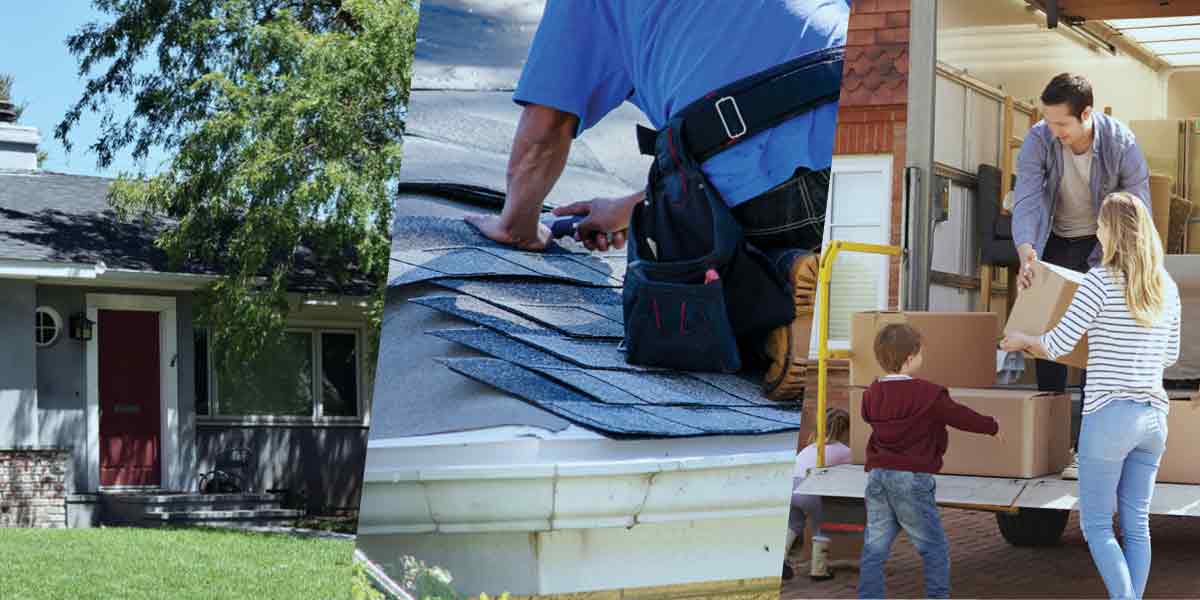
The science is clear: to prevent further climate change, the world must abandon fossil fuels for clean sources of energy.
The transition to clean energy is already underway, and solar panels are leading the charge: they’re now among the cheapest sources for utility power, and many Americans have successfully added them to their homes.
As good as solar panels are, the fact remains: rooftop solar isn’t right for all households.
In this article, we’ll go over all the reasons to avoid buying solar panels.
Why you can trust SolarReviews:
SolarReviews is the leading American website for consumer reviews and ratings of residential solar panels and solar panel installation companies. Our industry experts have over two decades of solar experience combined and maintain editorial independence for their reviews. No company can pay to alter the reviews or review scores shown on our site. Learn more about SolarReviews and how we make money.#7 Your roof isn’t suitable for solar panels
Home solar panel systems are nearly always placed on the roof. This is because most roofs possess the two necessary ingredients: lots of sunlight for the solar panels, and a surface to mount them on.
But what if you don’t have a roof to call your own, or you have a roof but it just isn’t up to the job?
Here are all the roof-related factors that could either prevent a successful solar installation or make it uneconomic:
- You don’t own a house: You could be renting your home, living in an apartment, or staying with your parents. Whichever it is, you can’t install rooftop solar panels unless you have your own roof (although there are other options to consider).
- Your roof is too old: While solar works on most roof types, the roof has to be strong enough to handle the stress of panel installation and bear the panels’ weight. If your roof is already weak or damaged, adding solar panels to it will only make things worse.
- You’re about to get a new roof: If you’re due for a roof replacement soon, you’re better off waiting till that’s done. If not, you’ll be forced to remove the panels before the new roof goes up, and go through a whole new installation process to get them back up again.
- Your roof is too small: The average home requires 16-20 solar panels, which takes up 280–351 square feet of space. If your roof is too small to fit enough panels, you won’t see much change in your utility bills.
- There’s too much shade: Consistent shade on your roof, whether from nearby trees or neighboring buildings, is bad news for solar panels, which don’t perform well without direct sunlight.
- The roof’s layout is unfavorable: Roofs that face away from the sun, or have an unfavorable slope, generate lower levels of solar power.
#6 There’s nowhere else to put solar panels
The roof of your home is the most common site for solar panels — but it’s not the only place they can go.
Many homeowners get creative and find another site, such as their backyard or atop another building on their property
However, if you neither have a suitable roof nor an alternative location, you’re left with nowhere to put the solar panels.
- Ground-mounting isn’t possible for you: Solar panels can be set up on special ground mounts where they are angled towards the sun for optimal performance. This option requires a lot of open space, however, so it’s unlikely to work if your property is under an acre in size.
- No other structure is available: Solar panels can be placed on sheds and carports, or backyard structures like gazebos and patio covers. If no such structure exists on your property, you’re out of luck.
#5 You plan to move or sell your home
If you’re planning on leaving your current residence within the next few years, pause and reconsider whether solar panels make sense for you right now.
That’s because moving a solar panel system can be difficult, if not downright impossible.
Firstly, your current home may have the space for solar panels, you might move into a house that doesn’t.
Secondly, your attempts to relocate your solar system could get blocked by local building codes in your new location, which may be more restrictive.
Finally, even where moving the panels is possible, the whole process might be too expensive. Removing solar panels from a roof costs $2,800 to $4,800 on average, and you’ll have to pay again to have them reinstalled on your new home.
All that said, I should point out that research by Zillow says that solar panels increase your home’s value by 4.1%. This means that given the right circumstances, installing solar before you move could actually prove profitable for you.
#4 Your electricity costs are already low
According to a survey by the Pew Research Center, 96% of homeowners have installed solar, or are considering doing so, to save money on utility bills.
This makes perfect sense. Many American households spend hundreds of dollars every month on their power bills — and solar panels are often the most effective way to slash that amount.
Financial modeling by SolarReviews shows 25-year bill savings in the amount of $78,682 for solar panels installed in San Francisco in 2023, for instance.
However, you may not be spending much on power to begin with for one or more of the following reasons:
- You have a small house
- You have a small household size
- Your home and appliances are energy efficient
- You enjoy low electric rates from your local utility
If that’s you, and you pay $50 or less a month for electricity, then installing solar probably isn’t worth the time and effort.
#3 You’re not eligible for incentives and rebates
The solar tax credit is currently worth 30%; you can use it to save nearly a third of the price of your solar system. This incentive can play a huge role in improving the payback period of a solar system purchase.
Net metering, available in 38 states, is another valuable incentive to be aware of. It allows you to sell surplus power to your utility at retail rates. Exemptions on sales and property taxes are also common, and some states even offer tax credits, for instance, the $5,000 up for grabs in New York.
But if you don’t qualify for incentives — the 30% tax credit, for instance, is only available if you pay federal taxes — then solar energy may not be your best option.
Learn more: Find out which solar incentives and rebates you qualify for.
#2 Your quote appears too good to be true
You’ve heard the old saying: if it’s too good to be true, it probably is. These words definitely ring true when it comes to solar offers.
Explosive growth in the solar industry over recent years has attracted plenty of fly-by-night operations, and their antics steal consumer attention away from reputable ones.
These dodgy operators make false promises about your solar power production and bill savings, and then pressure buyers into contracts with aggressive sales tactics.
They may also try to reel you in with ridiculously low prices, which is only possible because the solar panels are low-quality or defective, or because they don’t factor in the high costs of after-sales and warranty support as they don’t plan on providing these services.
Given that solar panels are designed to last at least 25 years, we recommend you steer far away from such solar cowboys.
Learn more: Questions to ask a solar company before you sign a contract.
#1 The economics aren’t right for you
There are many things to watch out for when weighing up the economics of solar for your home; check to see if any of them apply to you.
Factors that reduce the returns from solar panels:
Here are the factors that adversely affect your financial return from installing solar panels:
- High upfront costs: While solar panels are often available for $15,000 or less, your costs could be higher if you live in a high-cost location or require a tricky installation.
- Space restrictions: You can’t install a system large enough to deliver adequate electric bill savings.
- Roof issues: Your home’s solar potential is affected by shading or a non-ideal direction and angle.
- Low energy costs: You spend little on electricity to begin with, either because your energy consumption is low or your utility rates are cheap.
- Unfavorable financing: Your solar loan options have high-interest rates or impose onerous conditions like a first-priority lien because you have poor credit history.
- Lack of incentives: You don’t qualify for valuable solar incentives like the 30% tax credit or net metering.
Any combination of these factors means you’ll see lower utility bill savings and a longer solar payback period.
That said, many homeowners that have less-than-perfect conditions for solar are still able to save thousands of dollars by installing solar panels. Just make sure that solar panels are worth it for you before you make any decisions either way.
Key takeaways
- Without adequate space – be it on your roof, backyard, or even something like a carport – it’s impossible to install solar panels.
- Incentives play a key role in making solar affordable, so make sure you qualify.
- Avoid taking out a solar loan that has a high-interest rate or places a first-priority lien on your home.
- Calculate your solar payback period before making a decision to purchase.
